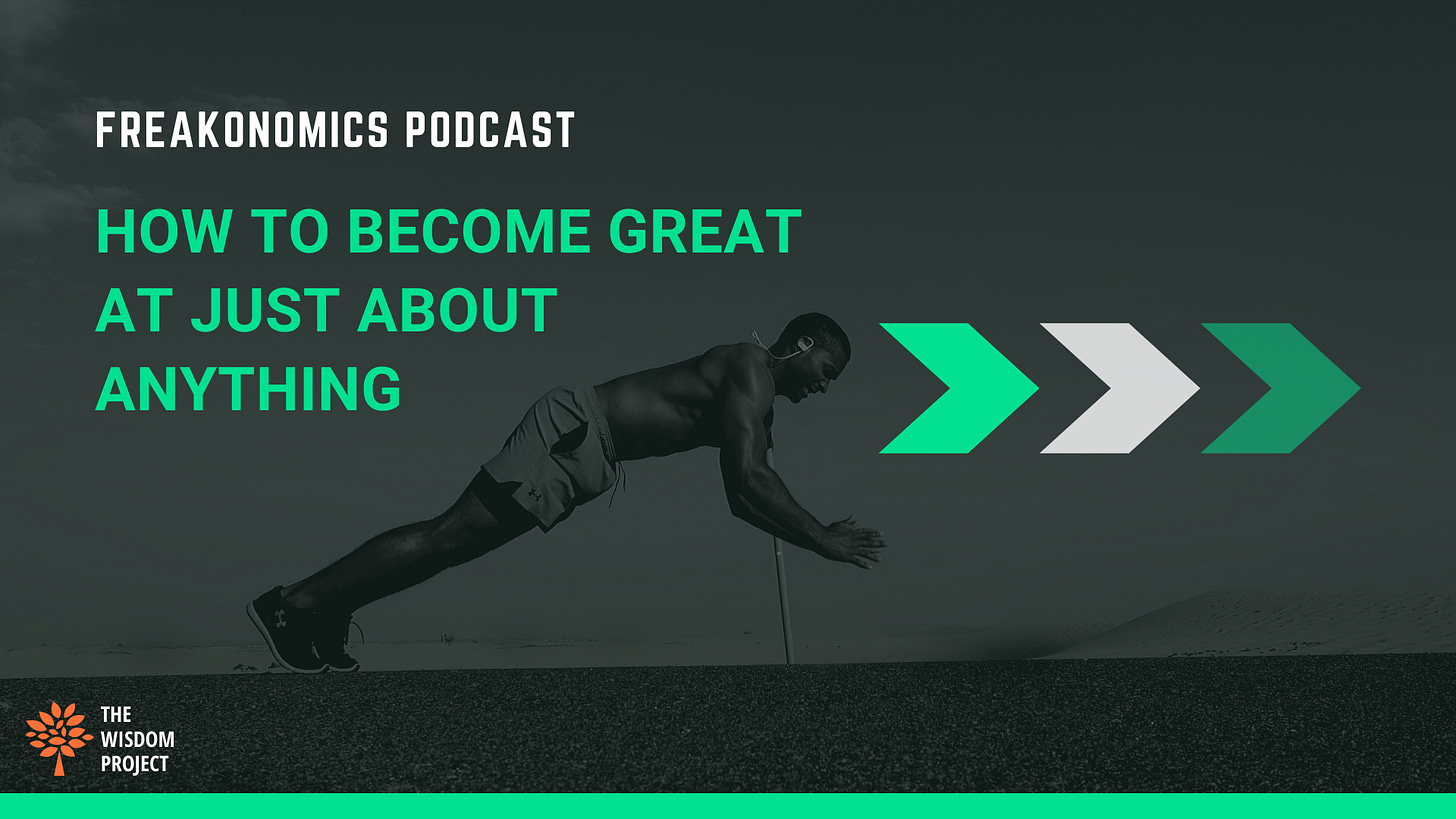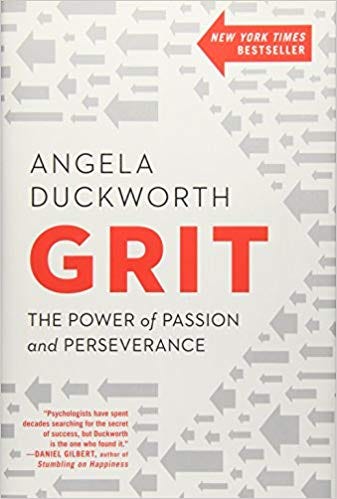Passion, Perseverance and Practice
Building My Best Self | Wisdom Letter #15

Do you have a skill?
Do you have mastery in that skill?
How do you think people achieve mastery?
How does Sachin Tendulkar bat the way he does, how does Lata Mangeshkar sing the way she does? And how does Narendra Modi speak the way he does?
You can say they all have the talent.
That intangible, elusive phenomenon that makes them a natural at whatever they do. It gives them an advantage over everyone else in their field, catapulting them to the top of the pyramid.
But is that it? Can talent alone take someone to the heights of peak performance?
If you’ve seen cricket in the maidans of India for a considerable amount of time, you would know that at least a million kids play this sport around the country on a daily basis. And they play with fierce intent to make it to the national team one day. And at least 1% of them are so full of potential and talent that you can bet they would actually fulfil their dream within the next 5 years.
Yet, very few actually make it there. A maximum of 10 I’d guess.
Same is true for any other area of expertise, be it sport, music, acting, oration, politics, business. You see a lot of ‘potential’ and ‘talent’ at the bottom of the pyramid, but as the levels increase, the gap between the average and the good widens, and the gap between the good and the great widens even more.
So if its not talent, then what does it take to achieve peak performance? Is it passion? or hard work? or just dumb luck? or all of it, and something more?
And what can we learn from these peak performers? What can we do to achieve mastery in whatever we do?
As you may have guessed from the title, today we are talking about Passion, Perseverance and Practice.
Today we’ll talk about —
-The importance of actually doing the grunt work necessary to achieve mastery.
-A much under appreciated idea called ‘Grit’.
-And the magic pill to instantly become an expert at anything —> 10,000 hours of deliberate practice.
So lets dive in.
#1
Behaviour change is not easy. Its a mountain to climb.
We spoke about habits a couple of weeks ago. And while they are great models to think about our own behaviour, they are not substitutes for the actual thing. They are just tools that will help you achieve desirable behaviour, you still have to do the hard work, and that’s perhaps the toughest part.
That’s where most people fail with behaviour change, they get interested in the tools and the models and start their journey. But after a few days as the novelty wears off they end up quitting the habit and going back to their original state.
Behind this is the phenomenon of biology called homeostasis.
This great article from Farnam Street talks about the reasons why we fail to implement behaviour change for longer periods of time. And the importance of doing the work necessary to get better at life. The importance of actually eating the broccoli to get healthy.
Couple of quotes I loved from the post—
This an Iron Rule of life: Biological systems tend towards what is comfortable. (Yes, human beings are “biological systems”.)
Remember that anything really worth doing is probably hard work, and will absolutely require you to do things you don’t currently do, which will feel uncomfortable for a while. This is a “hard truth” we must all face. If it was easy, everyone would already be doing it.
Read the post-
At Some Point, You Have to Eat The Broccoli
(5 mins)

#2
If you played chess for 4 hours everyday for the next 10 years would you become a grand-master?
You may, or you may not. It depends!
And no, it does not depend so much on your natural talent for chess. It actually depends a lot more on how you do the daily practice.
So its important to understand that a lot of brute practice will not benefit you as much after a point. What will actually help is something called ‘deliberate practice’
Its just a fancy way of saying that as you get better you need to practice a level higher. Lets say you are a level 1 chess player, after 15 days of playing against a player of level 2 you can start to beat him regularly and achieve level 2 yourself. But your game won’t get any better if you keep playing with him for the next 15 days.
Now you need to practice a level higher.
The idea of deliberate practice was first popularised by Swedish psychologist Anders Ericsson’s research which he documented in his book Peak. And Malcolm Gladwell extracted the 10,000 hour rule from it and took it to the masses in his bestseller Outliers.
While 10,000 hours of dumb practice is not very effective, what works best is deliberate practice over a long period of time.
Freakonomics Radio did a great podcast on the topic that goes into detail about the nuances around this idea. Check it out.
How to Become Great at Just About Anything
(53 mins)

OR
#3
Failure is a inherent part of Success. We may choose to not see it in successful people but that doesn’t mean its not there. So its important to realise that being unsuccessful is just a milestone on the journey to success.
What matters is that we keep trying after every failure. We all have heard quotes such as —
“Failure is the stepping stone to success”
“Success comes to those who fall 9 times and rise 10”
Nice.
That’s all the gyaan you will ever need to succeed in life. Right?
Wrong!
Can you really keep going after failure? And if you do then how do you do it? What is the mindset of the person who rises the 10th time after falling 9 times?
And can you keep this resilience up in any field of expertise?
Psychologist Angela Duckworth argues, that to keep this perseverance up you need great passion in any area.
Its only a deep passion for something that can drive you to keep going in spite of repeated failures. Its very difficult to give up when you’re passionate about something. Your mind will force you to give just one more shot right when you contemplate quitting.
She talks about the idea of ‘Grit’ as being essential for success. Grit being this combination of Passion and Perseverance.
Grit = Passion + Perseverance
Her research around top achievers shows that Grit is more important than talent to be successful consistently over a long period of time.
Talent can get you into the Indian Cricket team, but Grit is what will keep you there long enough to make a worth- while career.
Dr. Duckworth has written a book about her research. Its an interesting read that analyses the methods of high performers from various fields through the lens of Grit.
Check it out.
Grit: The Power of Passion and Perseverance
(352 pages)

#4
Perhaps the area where we need to be gritty the most in our day to day lives is our health. Building a healthier body takes a long time and often times its difficult to see the changes on a day to day basis.
Its like looking at a picture from very up close. We can’t make sense of it. But when we zoom out we can see how beautiful it is.
We need nudges to keep ourselves going day in and day out. Months can pass before we start to see any significant change, but the change wouldn’t have been possible without the boring grind of the daily work out.

A fitness band is a good way to get gritty about our physical health. It can be as simple as a step tracker, or as complex as a smart watch that tracks your heart rate, sleep quality and even your swims.
The idea is to give yourself that extra push of a daily step count or calorie burn target. Its most helpful in cold winter mornings when its the most difficult to get out of bed and easy to postpone the work-out for the next day. Or after a long day at work when you feel exhausted and just want to crash in the bed and sleep.
In the most difficult of times, the itch of meeting your daily target is the one thing that can motivate you to do what is necessary— Get off your butt and get moving.
So this holiday season become your own Santa and get yourself a fitness band or a smart watch that you would like to wear everyday, and set daily targets which are just slightly out of your reach. And as you start to meet those targets, just push them a little further away from your limits. Indulge in some deliberate practice.
PS: Its more effective if its expensive, so choose wisely!
#5
Signing off for the weekend here’s a quote worth pondering from the grittiest fictional character we know, the Italian Stallion- Rocky Balboa.

“The world ain't all sunshine and rainbows. It's a very mean and nasty place and I don't care how tough you are it will beat you to your knees and keep you there permanently if you let it. You, me, or nobody is gonna hit as hard as life. But it ain't about how hard ya hit. It's about how hard you can get hit and keep moving forward. How much you can take and keep moving forward. That's how winning is done!” -- Rocky
Life is hard. Achieving anything worth while takes a lot of blood, sweat and tears. Its also this pain that makes the final goal worth it, makes it special.
So to be successful in any area you need this never say die attitude from the fictional boxer.
Its not about hard you can hit, its about how hard you can get hit and keep moving forward.
Think about it!
If you liked what you just read, hit the subscribe button below to receive this Wisdom Letter directly in your inbox next week. It will help you spend your Sundays wisely.
And if you are already a subscriber, please hit the heart icon at the bottom of this post to show us some love.

Wisdom is like love. It spreads when you share it with someone. Tell someone about this post and spread some wisdom :)
Ciao
Aditi & Ayush
This was the 3rd post in a series we are calling ‘My Best Self’. If you enjoyed this you don’t want to miss the next one.
And in case you missed out last week, checkout last week’s wisdom letter, we spoke about Decision Making last Sunday — Decide and Conquer
If you are not sure how to consume all of the content we have shared here, checkout the ‘how-to’ post we wrote — Navigating Rough Seas
We made public lists of all the content we share for ready reference. Check them out—
Books as Amazon Public Wish-list
Articles as Pocket Recommendations
Videos as YouTube Playlist
This was Wisdom Letter #15. In case you want to revisit any of the previous 14 letters, checkout our entire archive.
And if you’re wondering why we are doing this project, what is the point of it? checkout the intro post, it might make some sense!
Disclaimer:
None of the links that we share here are affiliate links. We don’t intend to make money off of your purchases of any books or products that we recommend. These are honest recommendations that have worked for us and we share them without any ulterior motives

